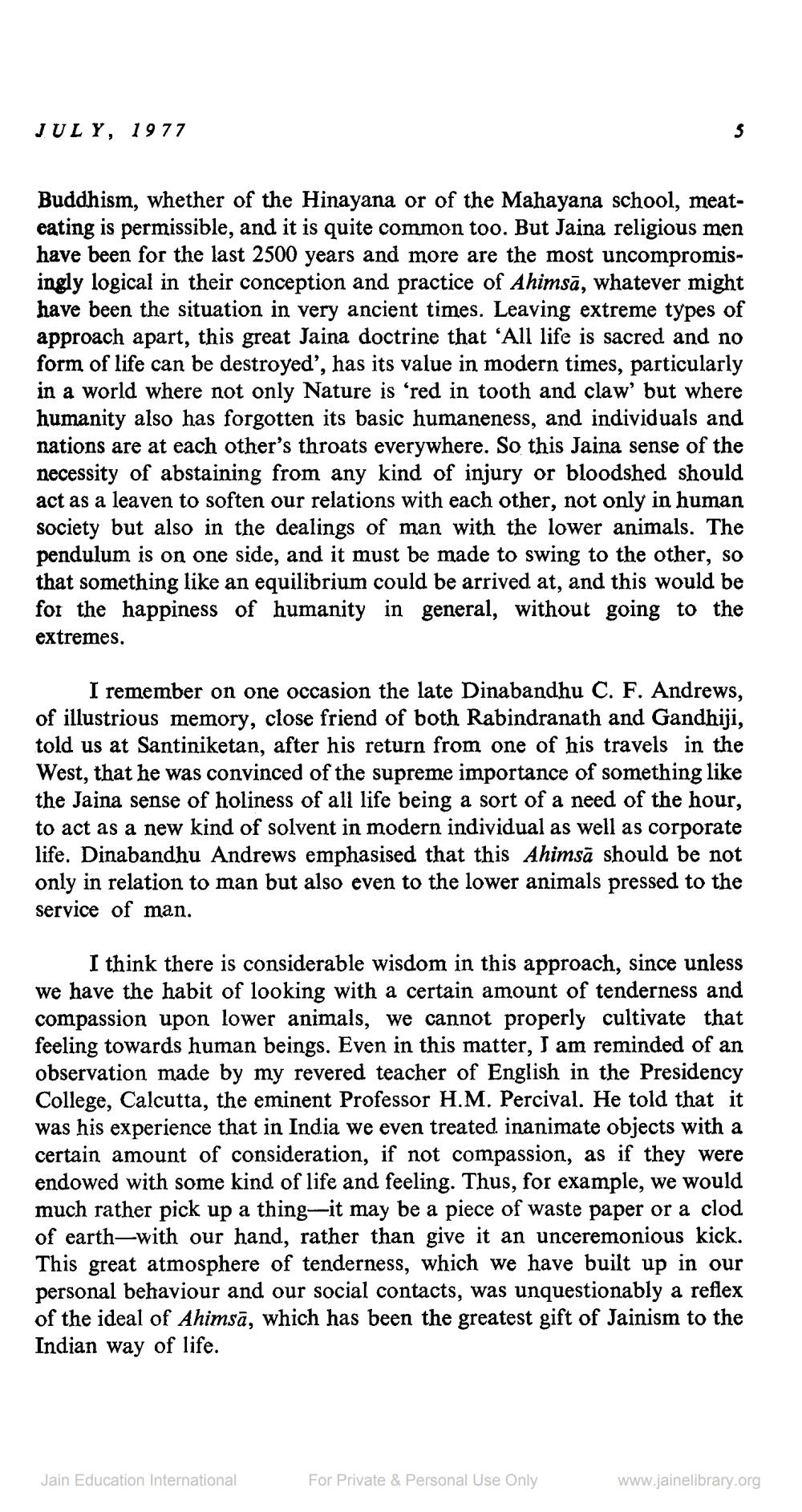Book Title: Jain Journal 1977 07 Author(s): Jain Bhawan Publication Publisher: Jain Bhawan Publication View full book textPage 7
________________ JULY, 1977 Buddhism, whether of the Hinayana or of the Mahayana school, meateating is permissible, and it is quite common too. But Jaina religious men have been for the last 2500 years and more are the most uncompromisingly logical in their conception and practice of Ahimsā, whatever might have been the situation in very ancient times. Leaving extreme types of approach apart, this great Jaina doctrine that 'All life is sacred and no form of life can be destroyed', has its value in modern times, particularly in a world where not only Nature is 'red in tooth and claw' but where humanity also has forgotten its basic humaneness, and individuals and nations are at each other's throats everywhere. So this Jaina sense of the necessity of abstaining from any kind of injury or bloodshed should act as a leaven to soften our relations with each other, not only in human society but also in the dealings of man with the lower animals. The pendulum is on one side, and it must be made to swing to the other, so that something like an equilibrium could be arrived at, and this would be for the happiness of humanity in general, without going to the extremes. 5 I remember on one occasion the late Dinabandhu C. F. Andrews, of illustrious memory, close friend of both Rabindranath and Gandhiji, told us at Santiniketan, after his return from one of his travels in the West, that he was convinced of the supreme importance of something like the Jaina sense of holiness of all life being a sort of a need of the hour, to act as a new kind of solvent in modern individual as well as corporate life. Dinabandhu Andrews emphasised that this Ahimsa should be not only in relation to man but also even to the lower animals pressed to the service of man. I think there is considerable wisdom in this approach, since unless we have the habit of looking with a certain amount of tenderness and compassion upon lower animals, we cannot properly cultivate that feeling towards human beings. Even in this matter, I am reminded of an observation made by my revered teacher of English in the Presidency College, Calcutta, the eminent Professor H.M. Percival. He told that it was his experience that in India we even treated inanimate objects with a certain amount of consideration, if not compassion, as if they were endowed with some kind of life and feeling. Thus, for example, we would much rather pick up a thing-it may be a piece of waste paper or a clod of earth with our hand, rather than give it an unceremonious kick. This great atmosphere of tenderness, which we have built up in our personal behaviour and our social contacts, was unquestionably a reflex of the ideal of Ahimsā, which has been the greatest gift of Jainism to the Indian way of life. Jain Education International For Private & Personal Use Only www.jainelibrary.orgPage Navigation
1 ... 5 6 7 8 9 10 11 12 13 14 15 16 17 18 19 20 21 22 23 24 25 26 27 28 29 30 31 32 33 34 35 36 37 38 39 40 41 42 43 44 45 46 47 48 49 50 51 52
